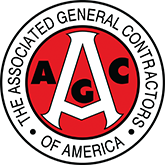
Olympia Adverse Possession Lawyer
As a property owner, you may be shocked to learn that someone can take your land away if they have lived there for a specific period. At the same time, if you are someone who has tended to land for a long time without objections from the owner, you may have a legal right to it. Adverse possession is a complex legal process involving high stakes.
Dealing with adverse possession laws on your own can be overwhelming and may result in costly mistakes. An experienced attorney can assess your situation, provide strategic advice, and represent your interests in court if necessary. By enlisting the services of a knowledgeable adverse possession lawyer, you can safeguard your legal rights.
An Olympia adverse possession lawyer at Dickson Frohlich Phillips Burgess can represent you in the legal process if you have an interest in the land. They can fight for your interests before any case goes to court. If you need to file a lawsuit as the property owner or squatter, you can count on zealous advocacy from our attorneys in court. We have experience in adverse possession and have handled numerous cases for decades.
What Is Adverse Possession?

Adverse possession is a legal doctrine allowing a person to gain legal ownership of land or property they do not hold title to by occupying it for a certain period under specific conditions. Often referred to as “squatter’s rights,” adverse possession can eventually transfer property ownership from the legal titleholder to the occupant if they meet all requirements.
To successfully claim adverse possession, the use of the property must typically be:
- Actual – The possessor must physically use the property, such as living on it or making improvements.
- Open and notorious – The use must be evident to anyone, including the legal owner.
- Exclusive – The claimant must be the only person possessing the property, not sharing control with others (including the owner).
- Hostile – The occupation must be without the valid owner’s permission.
- Continuous—The use must be unbroken for a statutory period, which varies by state. In Washington, for example, the period for someone to establish adverse possession is ten years of continuous usage.
Adverse possession may seem like an unfair outcome for property owners. They may be aghast that someone can take their property without their permission and become the legal and rightful owner. However, the law exists to encourage the full usage of the property. The policy behind the law is that it is unjust for someone to tend to and use property while the owner of the property does nothing with it. Fair or not, this is the law in Washington and every other state in the country.
Examples of Adverse Possession in Washington

Here are some common examples of how adverse possession might occur in Washington:
- Fence encroachment: A property owner builds a fence that mistakenly extends beyond their property line into a neighbor’s land. Suppose the fence stays in place, and the encroaching owner openly uses the disputed land (mowing, gardening, or making improvements) for 10 or more years without objection. In that case, they may claim ownership of that portion through adverse possession.
- Driveway Use: A homeowner consistently uses a portion of a neighboring parcel as a driveway or parking area, believing it is part of their property. If this use continues openly and without interruption for the statutory period, it may form the basis for an adverse possession claim.
- Vacant Land Maintenance: Someone maintains and uses a vacant adjacent lot—planting trees, building a shed, or hosting gatherings—without the owner’s consent. If the valid owner does not act to remove them, the occupant may eventually acquire legal title.
What Property Owners Need to Do to Prevent Adverse Possession

Property owners must be proactive in protecting their land from adverse possession claims. These claims can result in the loss of legal ownership if another party occupies and uses the property without permission for a set period. In Washington, for example, the statutory period is generally 10 years.
Regularly Inspect Your Property
Owners, especially those with vacant or rural land, should regularly visit and inspect their property to ensure no one is using it without permission. Look for signs of unauthorized activity, such as fencing, construction, or landscaping.
Clearly Mark Boundaries
Install fencing, boundary markers, or “No Trespassing” signs to make your property lines obvious. Visible boundaries can help deter others from mistakenly or intentionally encroaching on your land.
Respond to Encroachments Promptly
If a neighbor builds a fence or structure that crosses into your property, address the issue immediately. A written notice or request to remove the encroachment can prevent a “hostile” possession claim. You need to indicate that you do not acquiesce in using your property. Preferably, it should be in writing so there is some proof that you objected to what you believe is a trespass.
Grant Written Permission
Provide a written license or agreement if you allow someone to use your land temporarily, such as for gardening or parking. This documentation prevents the use from being “hostile,” a key element of adverse possession.
Consult a Surveyor or Attorney
If you suspect a boundary issue or potential claim, a professional survey and legal advice can clarify your rights and options. Early action is vital to prevent losing property through adverse possession.
Remember that people can interpret your silence as acquiescence when it comes to adverse possession. Doing nothing is exactly what can cause you to lose your land. By at least registering your objection in some format, you can keep the squatter from asserting that their use of the land was continuous and exclusive.
The property owner may need to file a legal action for ejectment. Here, a court can order a trespasser off the land. If you do not take this action, you may risk losing land ownership. A property lawyer at Dickson Frohlich Phillips Burgess can help you assert your property rights and protect your ownership interest in the land. They can take your case to court to eject a squatter if they do not leave your land when you ask them to.
How a Squatter Can Establish Their Property Rights Through Adverse Possession

At the same time, once the ten-year period for continuous possession under Washington law has passed, the squatter can take legal action to establish their ownership of the land. In Washington State, a squatter meeting the legal requirements for adverse possession may file an action for a quiet title to gain legal property ownership. A quiet title action is a lawsuit an individual files in a superior court that asks it to formally recognize the squatter as the lawful owner and remove any competing claims to the title.
To succeed, the squatter must prove they have met all the elements of adverse possession under Washington law, including actual, open and notorious, exclusive, hostile, and continuous possession of the property for at least ten years. Documentation such as photos, witness statements, tax payments, or maintenance records can help support their case.
Once a person files a claim, the court will notify any known property owners or parties with a potential interest. If there is no valid defense, the court may issue a judgment quieting title in favor of the squatter, legally transferring ownership to them.
These lawsuits are complex and fact-specific. If you are a squatter seeking to quiet title—or a property owner disputing such a claim—it is critical to consult a real estate attorney at Dickson Frohlich Phillips Burgess to protect your rights and interests.
The property owner can take countermeasures in court to thwart your action to quiet title. Not only can they oppose their action, but they can also file a counterclaim to seek your ejectment. They may even attempt to seek damages from you for the trespass.
Evidence For an Adverse Possession Case

In an adverse possession case, strong, well-documented evidence is critical to proving a claim or defending against one. The person claiming ownership must demonstrate that their use of the property was actual, open and notorious, exclusive, hostile, and continuous for the statutory period—typically 10 years in Washington.
Proper evidence includes photographs showing long-term use of the land, such as fencing, structures, or landscaping. Witness testimony from neighbors or previous owners can help confirm how someone used that land and for how long. Tax records showing the claimant’s payment of property taxes may also support the case, especially if done consistently over many years, although they are not determinative.
Surveys and property maps are essential to show boundary lines and how the land in question relates to the legal title. Written correspondence, such as notices or permission agreements, can help or hinder a claim, depending on the circumstances.
Why Adverse Possession Matters in Olympia Real Estate
Adverse possession is an essential legal concept in Olympia real estate because it can significantly affect property ownership, boundary lines, and land value. In a city with older neighborhoods and mixed-use zoning, poorly marked property lines or outdated surveys can exist. As a result, neighbors might unknowingly occupy portions of each other’s land by building fences, sheds, driveways, or gardens, creating situations where adverse possession claims may arise.
Understanding the risk of adverse possession is important for buyers, sellers, and investors. A buyer might acquire a property only to learn that a neighbor has a legal claim to a portion of it. Similarly, a seller may be unable to convey a clear title due to unresolved boundary disputes. These issues can delay sales, reduce property value, or result in litigation.
For property owners, being unaware of or failing to act on encroachments can lead to a loss of land. Monitoring and maintaining your boundaries is especially important in Olympia, where greenbelts, easements, and irregular lot shapes are common.
If you are protecting your land or asserting a claim, adverse possession can have lasting legal and financial consequences in Olympia’s real estate market.
How an Olympia Real Estate Attorney Can Help in Adverse Possession Matters

Adverse possession cases are complex and fact-specific, making the guidance of an experienced Olympia real estate attorney at Dickson Frohlich Phillips Burgess essential.
Whether you are a property owner defending against an adverse possession claim or seeking to establish land ownership through long-term use, a knowledgeable attorney at Dickson Frohlich Phillips Burgess can protect your rights and help you navigate Washington’s legal system.
For property owners, an attorney can assess whether someone else’s land use meets the legal elements of adverse possession—actual, open and notorious, exclusive, hostile, and continuous use for at least 10 years. If a neighbor or squatter is encroaching, your attorney can help you take timely action, such as sending written notices, filing trespass claims, or initiating eviction proceedings to prevent or disrupt a potential claim.
Suppose you are the party seeking ownership through adverse possession. In that case, an Olympia real estate lawyer can evaluate whether you have a viable claim and guide you through filing a quiet title action to gain legal recognition of your ownership. This documentation includes gathering evidence, such as witness statements, tax records, and photos, to support your case in court.
In either scenario, a real estate attorney will represent your interests and help you avoid costly mistakes. Their local experience with Olympia’s property laws, land use regulations, and court procedures can be the difference between losing and securing valuable property rights. Contact an Olympia Adverse Possession Lawyer Today.
Let a Real Estate Attorney Help Protect Your Property
If you are a property owner or someone else asserting their legal right to the land, you need help from an experienced Olympia adverse possession attorney at Dickson Frohlich Phillips Burgess. We can review your legal situation and advise you on how to proceed. Skilled attorneys can communicate on your behalf and file any necessary action in court. Our law firm has decades of experience representing property owners and others with an interest in land throughout the Pacific Northwest. You can schedule a consultation with an Olympia real estate attorney by visiting our website or calling us today at (360) 742-3500.
Dickson Frohlich Phillips Burgess – Olympia Office
Address: 111 21st Avenue Southwest
Olympia, WA 98501
Phone: (360) 742-3500
























